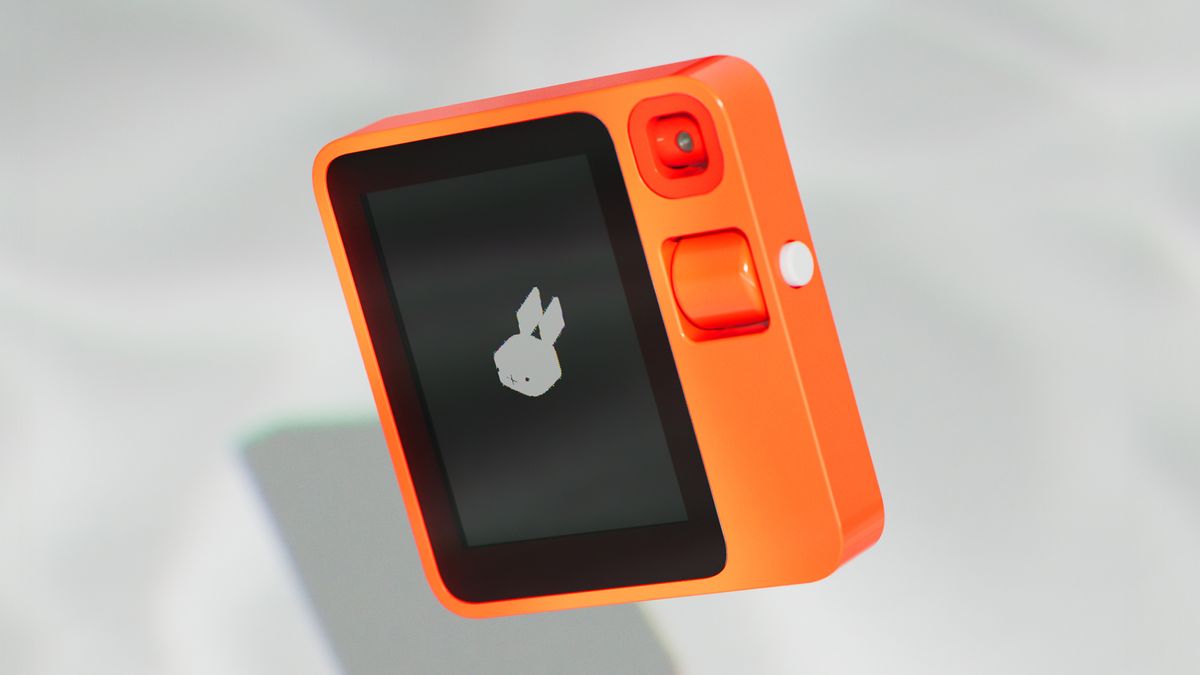The Rabbit R1, a AI gadget that’s equal parts charming and puzzling, is now out in the wild, and we’ve just spent a confusing day with it. But how exactly does the bright orange assistant actually work? Well, Rabbit has now refuted accusations that the R1 is fundamentally run by a single Android app.
Android Authority recently revealed how it had installed the Rabbit R1 launcher’s APK (Android Package) on an Android phone, showing that the device is likely both running Android and that its interface is powered by an Android app.
But Rabbit’s founder and CEO Jesse Lyu told the site in a statement (echoed by a Rabbit post on X, formerly Twitter) that the reality is a more bit nuanced. It said that “rabbit r1 is not an Android app” and that “to clear any misunderstanding and set the record straight, rabbit OS and LAM run on the cloud with very bespoke AOSP [Android Open Source Project] and lower level firmware modifications”.
In other words, the R1’s real juice is in the cloud rather than an on-device app, and that “a local bootleg APK without the proper OS and Cloud endpoints won’t be able to access our service”.
None of this is a huge surprise, nor does it directly contradict Android Authority’s broader points about the device. It’d be unfair to say the Rabbit R1 is as simple as an Android app because its LLM (large language model) and LAM (large action model) live in the cloud and can’t be accessed on a phone, nor could a phone interact with them in the same way.
But at the same time, the on-device client for those features is effectively an Android app – and that goes to the heart of those arguing that the whole experience could still live on a smartphone, and may even be better as a result.
Why isn’t the Rabbit R1 just an app?
Why can’t r1 just be an app?Here’s what we think: (thread) pic.twitter.com/yqOOcOgmgNFebruary 5, 2024
Back when the Rabbit R1 first launched, the company explained in the X (formerly Twitter) thread above why it was a piece of hardware rather than just a smartphone app. The argument was essentially that today’s apps are constricted by the smartphone experience and that Rabbit wanted to rethink how we interact with AI apps – and that it could only do that with new hardware.
Our early experiences, and the many others from tech reviewers, suggest that the Rabbit R1 hasn’t yet justified its existence as a standalone gadget. The R1 is undoubtedly a fun, tactile little device whose Teenage Engineering design has sparked a lot of attention from gadget-starved tech fans.
As TechRadar’s US Editor At Large Lance Ulanoff states in our early Rabbit R1 hands-on, there are so many things the R1 can’t do that “I’m constantly reaching for my phone” which is “a device that has multiple built-in cameras, a working phone, a calculator, and Microsoft CoPilot and OpenAI ChatGPT on it”. The latter are both generative AI platforms that “are faster than Rabbit’s LAM and more effective”.
Unfortunately, the Rabbit R1 doesn’t currently do enough that can’t be achieved with your smartphone using other AI apps. Rabbit has now pushed its first software update to improve some early issues (like battery life and music playback), but those fundamentals look unlikely to change soon – regardless of debates around bootlegged Rabbit OS apps and its Android underpinnings.





